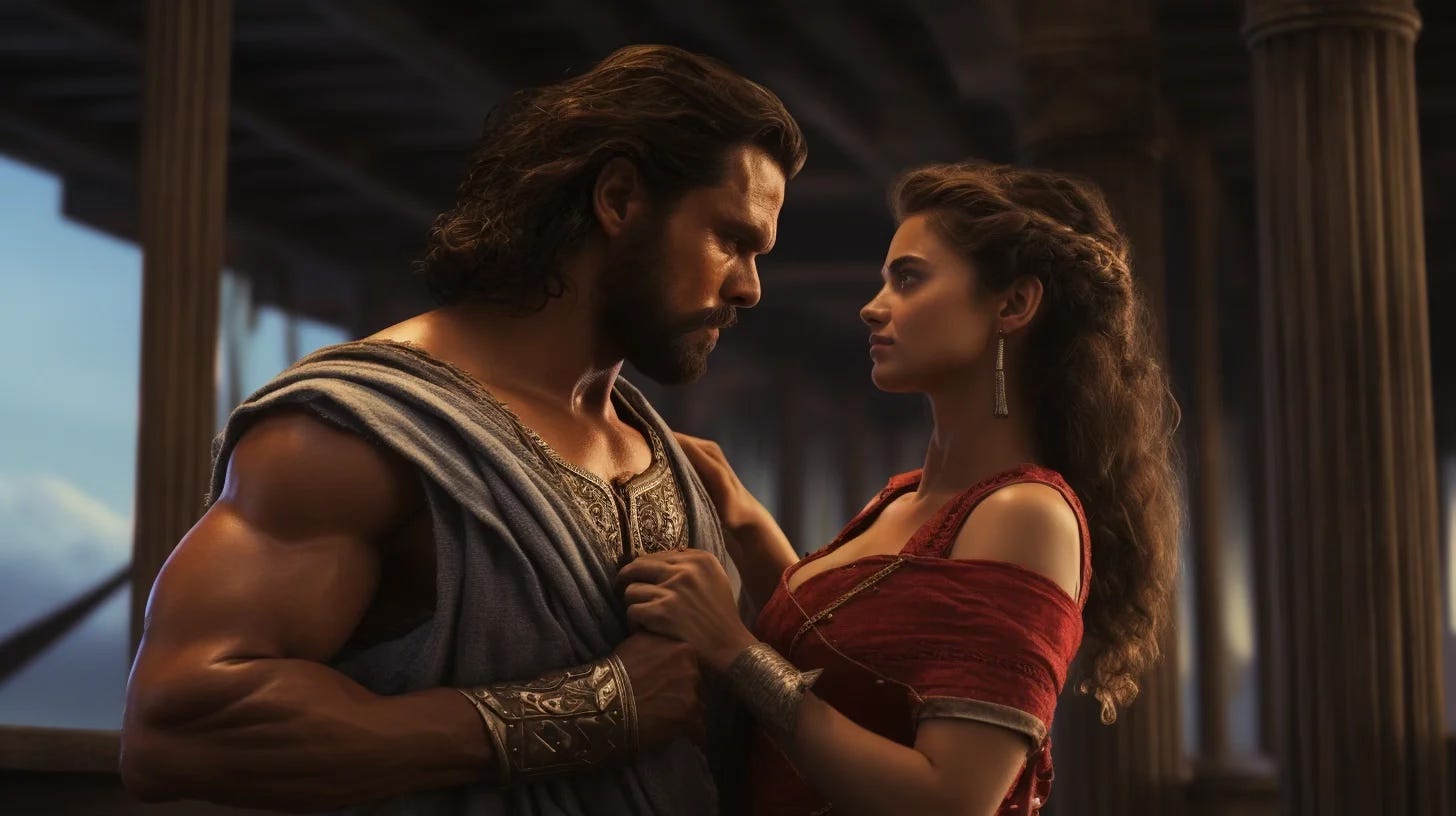The Odyssey: Reflections on Books 21 – 24
But in the end, we do have peace, which is at complete odds with the Rage that started The Iliad. The Odyssey concludes with both peace and hope.
The motive of the suitors has been a question throughout The Odyssey. Are they at the house of Odysseus to gain the hand of Penelope, for the revelry, or for another reason? In book 21, Eurymachus, one of the suitors, hits the nail on the head when he says:
“I do not even mind so much about the marriage. There are lots of other women on Ithaca, and in the other cities. But that we should be proven so much weaker than King Odysseus, that we should fail to string his bow! Our deep humiliation will be well-known for many years to come!”
Here, the heart of the matter is exposed. For Eurymachus, this is not about love or marriage. This is about pride. Sure, marriage to Penelope would have fed that pride, but the overarching issue with the suitors is that of pride. This is exposed further in their treatment of Odysseus while he is a beggar. The suitors have an attitude of superiority, a false pride that will kill them in the end. In Book 22, Antinous is exposed by Eurymachus when he says all he wanted was power:
“It was all his idea. He did not even really want your wife, but had another plan, which Zeus has foiled: to lie in ambush for your son, and kill him, then seize the throne and rule in Ithaca.”
A quite startling thing happens in the final book. After the suitors have been killed, order has been reestablished out of chaos, and Odysseus is reunited with Penelope. However, book 24 does not take the reader to a happily ever after scenario. Instead, the families of the deceased are incensed. Peace is not realized until the very last page, and even with that, the prophecy of Odysseus’ further journeys portend a mixed happily ever after.
This ending is much more true to life. The epic doesn’t end with a nice little bow tying all pieces together into eternal harmony. Conflict still exists. Odysseus will need to get to know his wife again. We already know he will leave home at some point. Will that wanderlust impact their marriage in other ways? Will trust be questioned when Odysseus’ lies and his abundant sexual encounters come to light? These are all questions that remain at the end of the epic.
But in the end, we do have peace, which is at complete odds with the Rage that started The Iliad. The Odyssey concludes with both peace and hope.
Throughout The Iliad and The Odyssey, we’ve seen heroes like Achilles achieve earthly glory yet mourn their choices in life. We’ve seen despots like Agamemnon killed in his own home (at the will of Zeus according to Book 24). We’ve seen a war ultimately decided not upon bravery, force, or rage, but instead through the cunning of Odysseus and Athena working together. We’ve seen that same cunning guide Odysseus through myriad challenges to finally arrive at home. We’ve seen the will of Zeus worked out in surprising ways amidst the turmoil of the gods. And we’ve seen the fidelity of Odysseus and Penelope leading to one of the most beautiful reunion scenes in all of literature.


